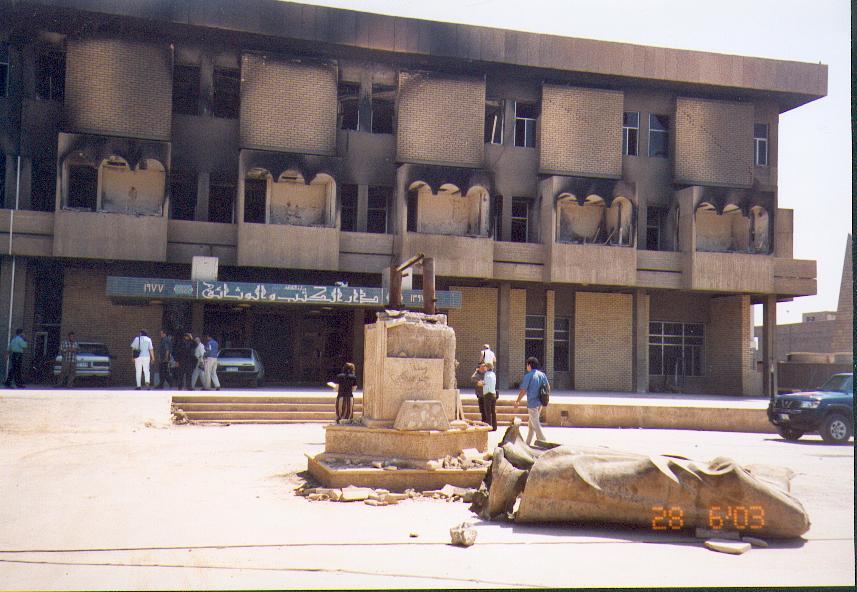Anne Van Camp has a sobering post on RLG's HangingTogether blog. (Although RLG has merged with OCLC, RLG staff members, as OCLC employees, still run this blog.) If you follow the links she gives, you'll find a brief diary of recent horrific events written by Saad Eskander, Director of the National Archives and Library of Iraq. One brief excerpt from November 13th: "I spent the rest of the week trying to advise a number of my employees what to do, as they got death threats. The Sunnis, who lived in Shi'i dominated district were given an ultimatum to abandon their homes and the Shi'is, who lived in a Sunni dominated district, had to leave their homes. So far, two of my employees were murdered, the first worked in the Computer Department, and the second was a guard. Three of our drivers, who worked with us by contract, were murdered and three others were injured."
Here's the blog post:
Bad News from Baghdad
December 5th, 2006 by Anne
Yesterday I learned of the news from Saad Eskander, Director of the National Archives and Library of Iraq, as reported by Patricia Sleeman on the Archivists discussion list in the UK:
Hi.
For security, I have closed the National Library & Archive since 22 Nov.
I will not reopen our institution until the security situation improves.
I am truly concerned aboput the safefty of my staff.Best Regards
SaadTo read his fuller account of the events and disaster that caused this decision, you can read his recent diary posts on the Society of Archivists website under the “take a look” section. I first learned about this account from the Archives list and then saw that Amanda Hill at the Archives Hub blog picked this up as well in her recent post called Death Again.
These first hand accounts bring home the personal dimension and significance of the death and destruction that threaten both people and their cultural patrimony in this terrible time of war. The whole genre of eyewitness accounts of war and conflict is some of the most compelling archival evidence we preserve and continues to be an important subject for research. Last week, Richard Cox put an interesting post on his blog on a book Robert E. Bonner’s The Soldier’s Pen: Firsthand Impressions of the Civil War (New York: Hill and Wang, 2006), ISBN-13:978-0-8090-8744-0 And he asks the questions about why were these witnesses so compelled to write about their experiences? And while we have saved so much of this type of correspondence from the past, how well we are doing with today’s e-mail and blogs from our contemporary soldiers?

This photo of the National Library and Archives, Baghdad, was taken in June 2003.




No comments:
Post a Comment